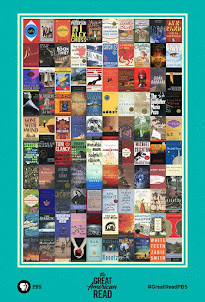Isn't it fun when there's excitement over a film? In the theater? With sold out shows and lines that wrap around the lobby far enough to make you worry that you might not get a seat? We may live in an age where you can watch feature films on cell phones or gaming systems or on-demand (or, or, or) but I think everyone out there will admit, there is really nothing like the experience of a good film on opening weekend in a theater. Seeing Bridesmaids at AMC Southdale 16 last Saturday night was very near perfect, so much so that I'm debating going a second time. For those of you that haven't seen it yet, go. Now.
The film, which stars (and was co-written by) Kristen Wiig is the story of Annie, a beautiful but down-on-her-luck woman who is charged with the task of standing maid of honor at her best friend's wedding (Maya Rudolph plays Lillian, the bride). Things don't go well, mostly due to Lillian's other, more refined friend, Helen (Rose Byrne). There are a series of one-upper speeches. A food poisoning incident. A drunken plane ride to Las Vegas, Wiig's limbs windmilling in directions that defy gravity, Annie's examination of self, the true meaning of friendship, etc., etc., and so on. And while the film is undeniably a success at its main goal, to get laughs, (and I say this at the risk of being labeled a buzz-kill) its credibility and originality as a production of a film *about women* also need to be acknowledged. But not until later.
In terms of the writing, the film's greatest achievement is probably its characters; they are interesting and believable despite their eccentricities (Becca, the Disney-obsessed newlywed, Rita, the burned out mother, and Megan, the gruff and loveable tomboy). More exciting than personal attributes, though, is the fact that all of these women are able, comical, and real---they captured us not by acting like men or serving simply as fashion mannequins but by showing us a women's realm and getting the job (of comedy) done on that turf. We get emotional ups and downs, bad decisions, competition, physical imperfections, Wilson Phillips, and so on, without it ever seeming overly estrogen-endulged or cheesy.
This film delivers again and again, humor-wise, for two reasons, the strength of the writing and Kristen Wiig's ability as a physical comedian. If the story isn't vacillating between well-written dialogues filled with cattiness or sarcasm, it's got Wiig as Annie literally flailing her body around obstacles or having to be awkwardly silent or controlled, which is just as funny as the occasions where she loses control (which are many). One of the greatest scenes comes during the aforementioned bout with food poisoning from a restaurant Annie chose where she struggles brilliantly to convince Helen she's not affected as the sweat pours down her face and every other bridesmaid has . . . noisily and unabashedly fallen victim nearby.





































































